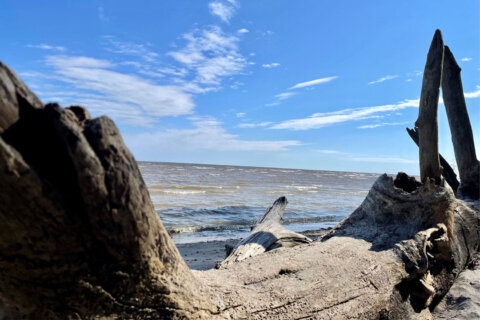ANNAPOLIS — The Chesapeake Executive Council, led by Maryland Gov. Larry Hogan, has signed a resolution urging the federal government to keep funding for the Chesapeake Bay at current levels.
The council, which met Thursday in Annapolis, is made up of representatives from six states and the District of Columbia, and its members support the full funding of the Chesapeake Bay Program, a federal initiative started in 1983.
Hogan, a Republican, has been under increased pressure from activists to distance himself from President Donald Trump’s policies on the environment. Hogan’s refusal to join leaders from across the country in the “We’re Still In” movement, in which jurisdictions pledge to stick to environmental goals laid out under the Paris Climate Agreement, has upset activists. But Hogan’s deputy communications director, Amelia Chasse, is quick to say that under a law Hogan signed in 2016, Maryland would exceed the goals laid out in the Paris accord.
While protesters demonstrated outside the State House on Thursday, members of the Chesapeake Executive Council signed off on the resolution that restates the participants’ commitment to preservation of the Chesapeake Bay.
Outside the meeting later, Don Boesch, president of the University of Maryland Center for Environmental Science called the resolution significant: “It was a very powerful statement to the federal government that all of these states, all of these governors — Republicans and Democrats — are behind this.”
Maryland Secretary of the Environment Ben Grumbles said state and local governments have a role to play as well. “We’ve got to keep reducing nutrients and sediment and working upstream as well as throughout the entire watershed.” Grumbles said the interstate partnerships help make that happen.
During the meeting, Hogan told the council members that he’d been talking to EPA Administrator Scott Pruitt, and that those talks had been “productive.”
Outside the meeting, Virginia Delegate Scott Lingamfelter, also a Republican, expressed optimism that the council can succeed in its goal of preserving the $73 million for the Bay in the EPA budget.
“It’s like we like to say in Virginia — when the governor gives us his budget, we say, ‘Thank you for your suggestion, governor,’ and then we go to work.”








